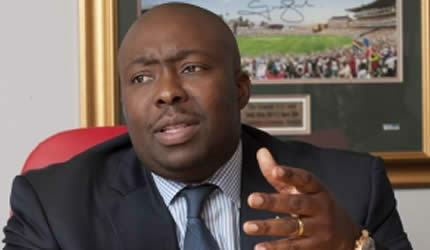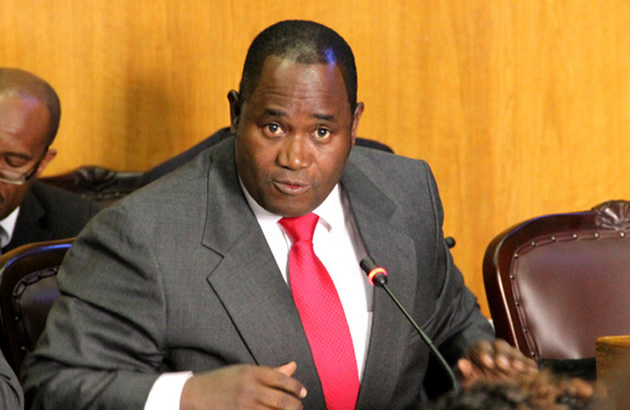Zim takes interest in clean energy initiative

Caesar Zvayi at the UNITED NATIONS—
Zimbabwe is keen to participate in the Africa Clean Energy Corridor initiative that seeks to promote a regional approach to developing clean, cost-effective renewable power to boost economic development, Environment, Water and Climate Minister Saviour Kasukuwere has said. The Africa Clean Energy Corridor initiative, put forward by the International Renewable Energy Agency (IRENA) and endorsed by ministers from countries of the Eastern Africa Power Pool (EAPP) and the Southern African Power Pool (SAPP) at the fourth IRENA Assembly in January 2014, promotes renewable power to support Africa’s economic growth.
The initiative calls for accelerated deployment and cross-border trade of renewable power in a continuous network from Egypt to South Africa.
According to IRENA, four-fifths of all electricity in Eastern and Southern Africa today is generated from carbon-bearing fossil fuels such as natural gas, oil or coal, and regional demand for electricity is expected to at least double in the next quarter century.
Experts, however, say half of all electricity in Eastern and Southern Africa could come from clean, indigenous, cost-effective renewables by 2030, allowing for a substantial reduction in carbon dioxide emissions.
Addressing the United Nations General Assembly at the Climate Change Summit here on Tuesday on initiatives being taken by Zimbabwe to mitigate the effects of climate change, Minister Kasukuwere said Africa needed assistance to exploit its vast renewable energy resources to stabilise the world climate.
Zimbabwe, Minister Kasukuwere said, viewed climate change as a very serious issue.
“Our main sector of climate change mitigation focus is the energy sector, which is the main source of greenhouse gases in the country,” he said.
Minister Kasukuwere told delegates that Zimbabwe, like most southern African countries, was failing to adequately satisfy its energy requirements, leading to the considerable depletion of its forests for energy purposes.
He urged developed nations to help pay to mitigate the effects of climate change, saying the cost of technology transfer from the developed world, particularly in the energy sector, was partly to blame for the continuing depletion of Africa.
“Developed countries must provide adequate means of implementation, including the finance, technology and capacity building needed to enable developing countries to address mitigation and adaptation,” said Minister Kasukuwere.
Government, he said, was in the process of developing a Renewable Energy Policy in a bid to help curb greenhouse gas emissions.
A new policy requiring all dams being constructed in Zimbabwe to include hydropower generation has been approved.
Private companies are operating as independent power producers, injecting 18 megawatts into the national grid with two major projects expected to contribute an additional 1 200 megawatts from a mix of renewable and thermal sources, which is about 66 percent of the country’s peak demand, by 2016.
Another three renewable energy projects to contribute 600 megawatts each by 2016 are being discussed.
Minister Kasukuwere revealed that Government had put in place policies to help safeguard the country’s forests as he hailed the climate change summit as important to tackle climate change and ensure a brighter future for the world.
Government’s economic blueprint, the Zimbabwe Agenda for Sustainable Socio-Economic Transformation, identifies energy and power development as key enablers of productivity and socio-economic development.








Comments